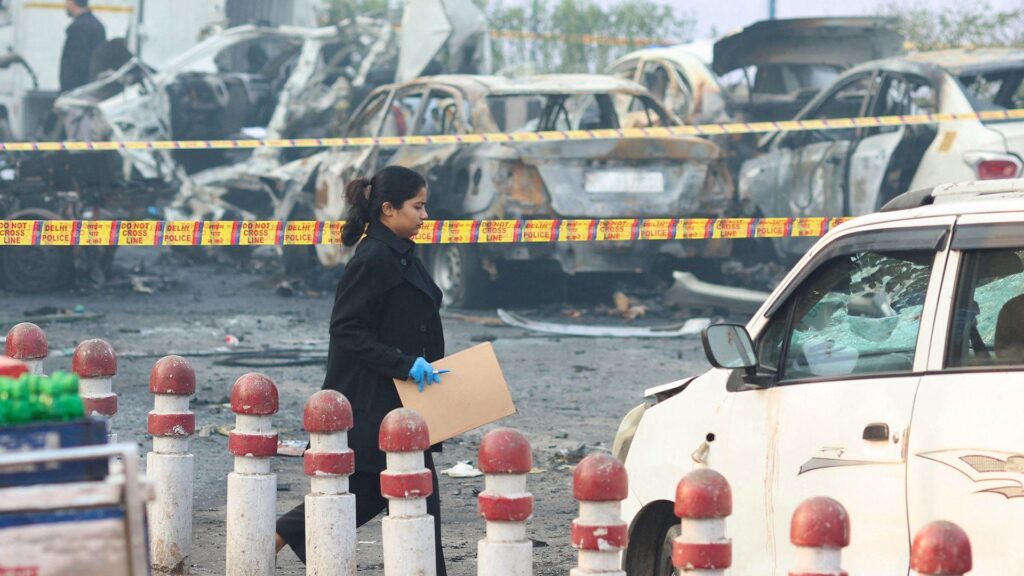Indian authorities have arrested a man in connection with last week’s deadly car bomb attack in Delhi that left eight people dead and at least 20 others injured. The National Investigation Agency (NIA) confirmed that the suspect, a resident of Indian-administered Kashmir, was taken into custody after investigators traced the vehicle used in the explosion back to him.
The Indian government has described the blast as a “terrorist incident,” marking the first such attack in the capital since 2011. According to the NIA, the arrested individual is accused of conspiring with the alleged suicide bomber who drove the explosive-laden vehicle. A second vehicle, believed to belong to the suicide attacker, has also been seized for forensic examination.
The powerful explosion occurred near a metro station close to the Red Fort, one of Delhi’s most iconic and heavily visited landmarks. The attack took place at 18:52 local time on Monday evening when a slow-moving white Hyundai i20 came to a halt at a busy traffic signal before detonating. Moments later, the blast engulfed surrounding vehicles, including an autorickshaw and several cycle rickshaws, sending panic through the area.
Home Minister Amit Shah confirmed that the bomb was planted in the white i20, while footage from the scene revealed the charred remains of the vehicle amid scattered debris. Prime Minister Narendra Modi condemned the attack, calling it a “conspiracy,” and vowed that the government would bring all perpetrators, collaborators, and sponsors to justice.
Opposition leader Rahul Gandhi described the incident as “extremely heartbreaking,” calling for unity and vigilance.
Investigators have already questioned 73 witnesses, including survivors, as they attempt to unravel the network behind the attack. Police say they are probing possible links to the recent arrest of seven men in Indian-administered Kashmir, as well as a major seizure of 2,900 kilograms of explosives in a Delhi suburb.
With thousands visiting the Red Fort daily, the attack has raised renewed concerns over security in the capital, prompting authorities to tighten surveillance around high-profile public spaces.

